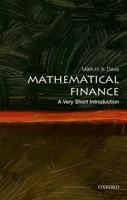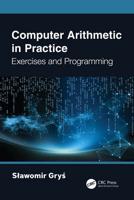Publisher's Synopsis
In conventional mathematical programming, coefficients of problems are usually determined by the experts as crisp values in terms of classical mathematical reasoning. But in reality, in an imprecise and uncertain environment, it will be utmost unrealistic to assume that the knowledge and representation of an expert can come in a precise way. The wider objective of the book is to study different real decision situations where problems are defined in inexact environment. Inexactness are mainly generated in two ways - (1) due to imprecise perception and knowledge of the human expert followed by vague representation of knowledge as a DM; (2) due to huge-ness and complexity of relations and data structure in the definition of the problem situation. We use interval numbers to specify inexact or imprecise or uncertain data. Consequently, the study of a decision problem requires answering the following initial questions: How should we compare and define preference ordering between two intervals?, interpret and deal inequality relations involving interval coefficients?, interpret and make way towards the goal of the decision problem?
The present research work consists of two closely related fields: approaches towards defining a generalized preference ordering scheme for interval attributes and approaches to deal with some issues having application potential in many areas of decision making.










